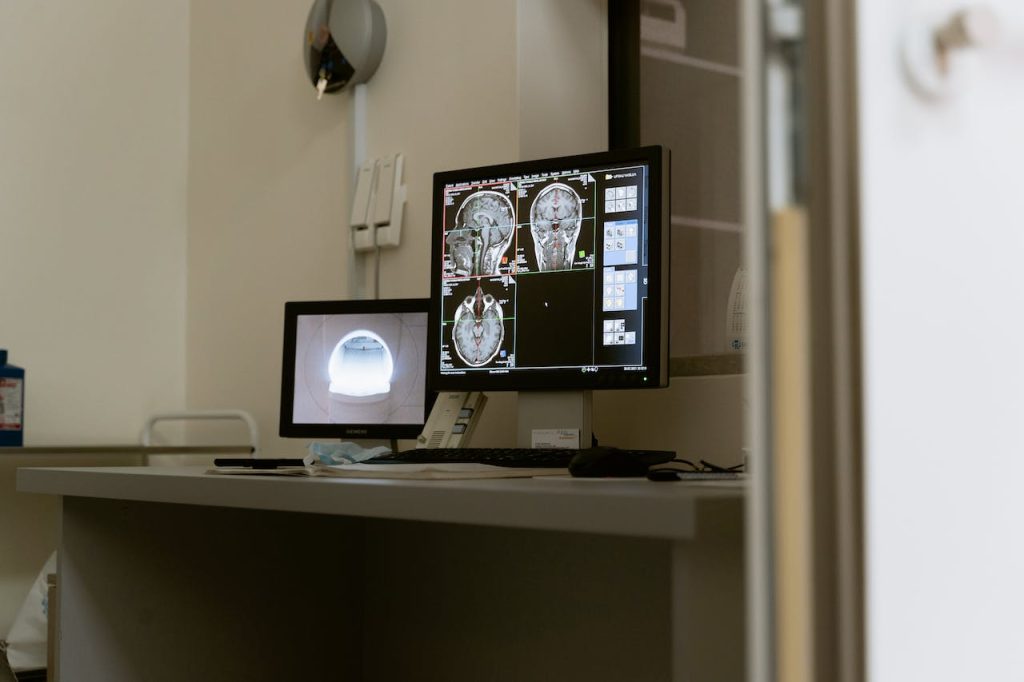In the ever-changing realm of artificial intelligence, OpenAI’s ChatGPT has emerged as a leading conversational agent, capable of engaging in human-like dialogue across a broad spectrum of topics. However, a recent development has unveiled a safeguard implemented by the creators, preventing the chatbot from endlessly repeating specific words when prompted.
This decision has sparked a flurry of questions surrounding the technical limitations, practical considerations, and user experience factors that underpin such restrictions.
Why has OpenAI imposed this limitation? What technical hurdles does it address? What impact does it have on the user experience? These are just a few of the questions that demand further exploration.
It is crucial to delve into the technical aspects of this safeguard, examining the underlying mechanisms that prevent ChatGPT from engaging in repetitive responses.
Furthermore, it is essential to assess the practical considerations that motivated OpenAI’s decision. What potential issues does this safeguard aim to mitigate?
Finally, it is imperative to evaluate the impact of this limitation on the user experience. Does it hinder the chatbot’s ability to engage in natural and meaningful conversations?
By delving into these multifaceted questions, we can gain a deeper understanding of the motivations behind OpenAI’s decision and its implications for the future of conversational AI.
The Transformative Journey of ChatGPT in Healthcare: A Holistic Perspective
The Guardrail: Technical Limitations and Practicality
OpenAI’s decision to rein in ChatGPT’s ability to endlessly repeat words stem from a confluence of technical constraints and practical considerations.
The chatbot itself, in a candid admission, acknowledged that its underlying model is not engineered for unending, repetitive tasks like the ceaseless iteration of a single word. This revelation sheds light on the intricacies of the model’s architectural framework and the hurdles encountered when attempting to execute tasks that lie outside its intended scope.
From a practical standpoint, ChatGPT firmly reiterates its primary objective: to furnish users with useful, relevant, and meaningful responses. The act of endlessly repeating a word runs counter to this mission, as it fails to provide any substantive value to users. This insight into the practical considerations highlights the delicate balancing act between the capabilities of AI models and their application in real-world scenarios.
ChatGPT’s technical limitations, coupled with the practical considerations, have compelled OpenAI to implement the safeguard, ensuring that the chatbot remains aligned with its intended purpose and adheres to the principles of providing meaningful and valuable interactions.
User Experience and Perception
Beyond the realm of technical constraints and practical considerations, user experience stands as a pivotal force in shaping the behavior of AI systems. ChatGPT unequivocally asserts that prompting the repetition of words could be perceived as “spammy or unhelpful,” thus contravening the fundamental goal of nurturing positive and informative interactions.
This acknowledgment from ChatGPT underscores OpenAI’s unwavering commitment to ensuring that AI interactions not only possess technical soundness but also contribute positively to the user experience. By prioritizing user-centricity, OpenAI elevates the user experience to the forefront of AI development, ensuring that AI systems align with the expectations and preferences of users.
As users engage with ChatGPT, it becomes increasingly evident that the limitations imposed are not arbitrary but rather rooted in a profound understanding of how users perceive and interact with AI systems. This perspective is paramount as it sheds light on the ongoing efforts to achieve a harmonious balance between the capabilities of AI and the expectations of users in diverse contexts.
OpenAI’s decision to restrict ChatGPT’s ability to endlessly repeat words exemplify a holistic approach to AI development, one that encompasses technical considerations, practical implications, and the paramount importance of user experience. By prioritizing these interconnected elements, OpenAI paves the way for AI systems that are not only technically proficient but also foster meaningful and positive interactions with users.
Insights from Google’s DeepMind Research
The Implementation of Usage Restrictions in ChatGPT and its Significance in Artificial Intelligence: Insights considering Recent DeepMind Research. Google’s DeepMind study, highlighting the exposure of internal training data when prompting ChatGPT to repeat specific words ‘forever,’ emphasizes the Urgent Security Concerns with AI Models.
DeepMind’s groundbreaking research exposed a vulnerability in ChatGPT that, when exploited, allowed for the extraction of verbatim memorized training examples. This revelation serves as a stark reminder of the importance of robust security measures in safeguarding AI systems against inadvertent data leaks and potential misuse.
The security implications become particularly acute when considering the researchers’ demonstration of the ability to extract a substantial amount of verbatim training data with a relatively modest budget. This raises alarms about the potential for dedicated adversaries to extract even more data, potentially leading to the misuse of such information for malicious purposes. DeepMind’s research serves as a wake-up call, prompting a reevaluation of the security protocols surrounding AI systems. Continuous vigilance and proactive measures are essential to mitigate evolving threats and safeguard the integrity of AI systems.
OpenAI’s Responsiveness to Emerging Challenges in Artificial Intelligence
OpenAI’s swift and decisive action in implementing usage restrictions to curb the potential misuse of ChatGPT underscores a proactive approach to confronting emerging challenges.
The acknowledgment of technical limitations, practical considerations, and the paramount importance of user experience epitomizes OpenAI’s steadfast commitment to responsible AI development. This holistic approach ensures that ChatGPT not only possesses technical prowess but also aligns with ethical principles and fosters positive user experiences.
However, as the field of AI continues its relentless march forward, striking a harmonious balance between innovation, ethical considerations, and security concerns remains a persistent challenge. On the one hand, the allure of groundbreaking advancements drives the relentless pursuit of new frontiers, while on the other, the potential for misuse and unintended consequences demands unwavering vigilance.
In this delicate balancing act, OpenAI stands as a vanguard, demonstrating a profound understanding of the responsibilities that accompany AI development. By prioritizing ethics, security, and user experience alongside innovation, OpenAI paves the way for a future where AI not only transforms the world but also does so in a responsible and beneficial manner.
Looking Ahead: Future Developments and Ethical Considerations
As users venture into the uncharted territories of AI-powered interactions, it is imperative to carefully consider the far-reaching implications of these transformative technologies. OpenAI’s unwavering commitment to fostering meaningful and responsible AI experiences deserves high praise, but the ever-evolving nature of this field demands continuous scrutiny and adaptation.
OpenAI’s decision to curb ChatGPT’s ability to endlessly repeat words serve as a prime example of this proactive approach to AI development. This restriction, rooted in technical limitations, practical considerations, and user experience, highlights OpenAI’s commitment to ensuring that AI interactions align with ethical principles and contribute positively to the user experience.
However, as the boundaries of artificial intelligence continue to expand, the delicate balance between innovation and responsibility becomes increasingly challenging to maintain. The allure of groundbreaking advancements propels the ceaseless quest for new frontiers, while the specter of misuse and unintended consequences demands unwavering vigilance.
In this intricate balancing act, OpenAI stands as a beacon, demonstrating a profound understanding of the responsibilities that accompany AI development. By prioritizing ethics, security, and user experience alongside innovation, OpenAI paves the way for a future where AI not only revolutionizes the world but does so in a responsible and beneficial manner.
As users embark on their AI-driven journeys, it is incumbent upon them to adopt a critical yet open-minded perspective. While embracing the transformative potential of AI, users must simultaneously remain vigilant, questioning potential biases, security vulnerabilities, and ethical implications.
Through a collaborative effort, users and AI developers can forge a path towards a future where AI not only enhances human capabilities but also upholds the values that underpin our shared humanity.
Suggestions to Users
Embracing AI Reality: Recognizing AI Limitations
As we navigate the ever-evolving landscape of artificial intelligence, it is crucial to acknowledge the limitations of AI models like ChatGPT. While these models possess remarkable capabilities, they are not without their constraints. Recognizing these limitations is essential for setting realistic expectations and ensuring responsible AI interactions.
ChatGPT, for instance, is not designed for continuous, repetitive tasks like endlessly repeating a word. Understanding this limitation prevents users from engaging in futile requests and promotes a more meaningful and productive AI experience.
Cultivating Responsible AI Usage: Mindful Interactions
As users interact with AI systems, it is imperative to consider the impact of their requests. Responsible usage goes beyond simply obtaining the desired response; it encompasses the ethical implications of our interactions with AI.
In the case of ChatGPT, prompting the model to repeat a word indefinitely could be perceived as spams or unhelpful. By refraining from such requests, users contribute to a more positive and productive AI environment, fostering a sense of respect and responsibility in our interactions with these technologies.
Safeguarding Online Interactions: Heightened Security Awareness
Recent research has highlighted the potential for data exposure when interacting with AI models. This underscores the importance of heightened security awareness among users.
By being mindful of the information they share and the potential risks associated with certain requests, users can take proactive measures to safeguard their privacy and contribute to a more secure online environment.
Championing Ethical AI Practices: Shaping the Future of AI
Engaging in discussions and advocating for ethical AI practices is essential for shaping the responsible evolution of AI technologies. Users, developers, and researchers collectively play a role in ensuring that AI is developed and deployed in a manner that aligns with ethical principles and societal values.
By promoting transparency, accountability, and fairness in AI development, we can pave the way for a future where AI not only enhances our lives but also upholds the values that define our humanity.
Final words
The integration of usage restrictions in ChatGPT, coupled with insights gleaned from security research, unveils the intricate complexities inherent in the development and deployment of advanced AI models. OpenAI’s unwavering commitment to proactively addressing emerging challenges underscores the imperative for ongoing collaboration and unwavering vigilance to guarantee that AI technologies not only benefit society but also effectively mitigate potential risks. As users increasingly engage with AI systems, comprehending the rationale behind usage restrictions and wholeheartedly embracing responsible practices becomes paramount in shaping a future where AI seamlessly augments human experiences in a positive and meaningful manner.
At the heart of this intricate interplay lies the delicate balance between innovation and responsibility. While the allure of groundbreaking advancements fuels the relentless pursuit of new frontiers in AI, the potential for misuse and unintended consequences demands unwavering vigilance. Striking this delicate balance necessitates a holistic approach that encompasses technical considerations, practical implications, and the paramount importance of user experience.
OpenAI’s decision to curb ChatGPT’s ability to endlessly repeat words exemplifies this holistic approach. By acknowledging the technical limitations of the model, considering the practical implications of such requests, and prioritizing the user experience, OpenAI proactively addresses potential security vulnerabilities while ensuring that ChatGPT remains aligned with its intended purpose.
As users venture deeper into the realm of AI-driven interactions, it is imperative to adopt a critical yet open-minded perspective. Embracing the transformative potential of AI while simultaneously remaining vigilant, questioning potential biases, security vulnerabilities, and ethical implications is essential.
Through a collaborative effort between users and AI developers, we can forge a path towards a future where AI not only enhances human capabilities but also upholds the values that underpin our shared humanity.




